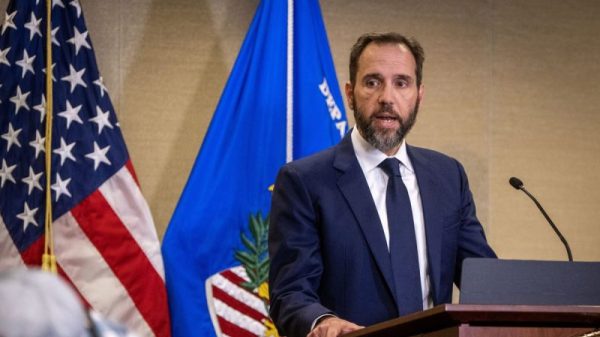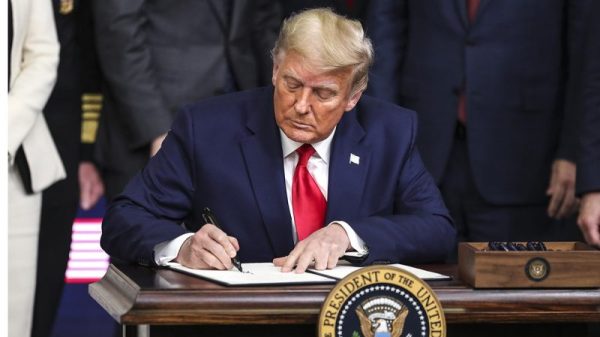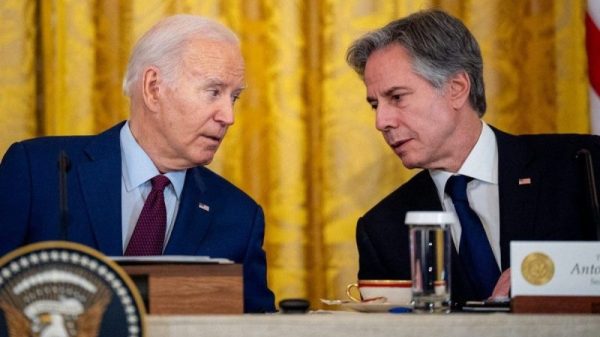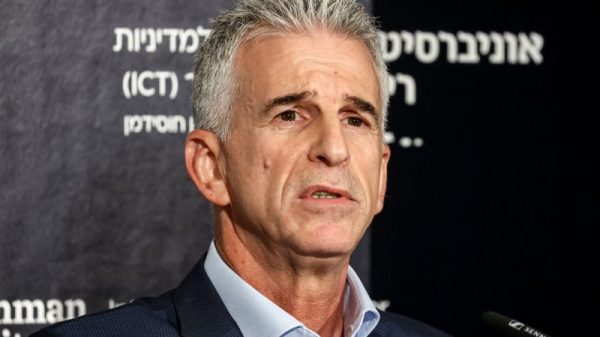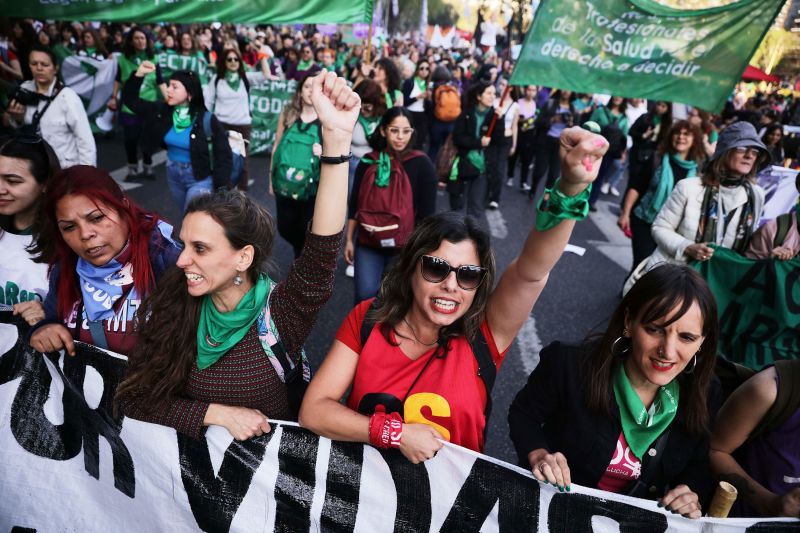Montecarlo is a small city in the province of Misiones, Argentina, with just under 20,000 inhabitants. Those who walk through its neighborhoods can find cobblestone streets, but most of the roads are made of dirt. Anyone who wants to travel from this town to Posadas, the provincial capital, has to drive for about three hours.
María (who asked not to be identified by her real name to avoid being recognized in her city) says that in Montecarlo, all the neighbors know each other. She has four children: the oldest is 13 years old, and the youngest is just over a year old.
As she speaks, she breastfeeds her baby, and explains that for some time now, she has been in charge of all the household and childcare responsibilities: her husband lost his registered job in February and had to move to a nearby town where he does cleaning work in fields.
In July, María noticed a delay in her period despite using contraceptives. The situation at home was not easy, and supporting four children on an informal income made it difficult for her family to get through each month. She says that having another child was not an option. As soon as she suspected she might be pregnant, she went to her regular gynecologist, who had helped her deliver her children.
During the consultation, María asked about her options for accessing an abortion, but the doctor told her he didn’t perform such procedures and asked her to leave.
After this initial negative response, María got an appointment at the local public hospital. There, she also asked for help, but they couldn’t provide her with information about her alternatives. So, she sought of a third option: she traveled to Eldorado, a neighboring city to Montecarlo, where the public hospital has a family planning section.
There, they sat her down with other patients and explained to all of them how the abortion procedure worked. When some of them asked if the hospital would provide the medication, they were told there wasn’t enough, and they would be given a prescription to buy the abortion-inducing drug misoprostol privately.
“At that moment, I didn’t have 100,000 pesos (about 73 dollars at the parallel exchange rate in July). My husband had lost his registered job, so I went to the public hospital to get it for free,” she explains, adding that she tried to inquire about misoprostol with professionals at the public hospital in her area, but they also didn’t have free medication.
“When I asked, they replied: no, we don’t have any. I started crying, going back home, I was overwhelmed with despair because my husband had gone far away to work, and I was left alone. It felt like every door was closed to me. And I got home crying with my baby in my arms”, María recounts.
Since the start of his administration, the government of Argentina’s President Javier Milei halted the purchase of essential supplies for abortion access and has not delivered a single box of misoprostol, mifepristone, or manual vacuum aspiration cannulas, essential elements to guarantee abortion access for pregnant individuals, according to an information request filed by rights group Amnesty International.
Abortions were legalized in Argentina in 2021 in all cases up to 14 weeks of pregnancy. According to the legislation, a person who wants an abortion has the right to do so safely and free of charge.
However, exercising this right is becoming increasingly difficult in the country this past year, as confirmed by organizations dedicated to monitoring reproductive rights in Argentina, such as Amnesty International, the Latin American team of Justice and Gender, and the Safe Abortion Access Network, among others.
According to the report presented in May by the National Directorate of Sexual and Reproductive Health of Argentina’s Ministry of Health, the distribution of medications and equipment for manual vacuum aspiration had not been carried out until that month due to lack of stock, and the guarantee of these supplies for the remaining months would depend on the progress of the public tender, which at the time of the official response, was underway.
Searching for a workaround
As a last resort, María searched for alternatives online. This is how she came across Amnesty International, an organization that works for the promotion and defense of human rights. Through a form on their website, she shared the obstacles she faced in accessing an abortion in her province, and within a week, professionals from the NGO contacted her and guided her on how to obtain the medications for free to assert her right to a legal, safe, and free abortion.
María is one of the cases where Amnesty International had to intervene to ensure a safe abortion. The law states that individuals who wish to access this procedure must have their right guaranteed within no more than ten days. It took nearly a month for María to get an abortion.
According to the organization, complaints about barriers to accessing voluntary termination of pregnancy through the complaint form available on their website increased by 80% in the year up to August 2024 compared to the previous year.
The contrast with data from previous years is striking, Galkin explains. “While in 2023, nearly 150,000 treatments of the misoprostol and mifepristone combination were guaranteed or distributed nationwide, this year the provinces have not received stock, and we have been confirming this with public information requests to various provinces,” she detailed.
Galkin from Amnesty highlighted that provinces are not only reporting a lack of access to supplies for legal voluntary termination of pregnancy but also a shortage of contraceptive methods. “There is a lot of concern about the impact this will have on family planning,” she emphasized.
A temporary solution
According to Amnesty International and RedAAS, provincial governments are seeking alternatives to fill the gap left by the national government in reproductive health.
“Some provinces have immediately made direct purchases because, otherwise, women’s and pregnant individuals’ rights end up being violated,” explains Galkin.
Ramos adds: “Provinces are purchasing in quantities that probably won’t meet the entire demand, but there is a willingness from some provinces to take on the purchase of supplies.”
The problem with leaving it to each province, both specialists explain, is that it deepens inequalities across different regions of the country, as not all regions have the same resources.
Ramos asserts that the impact of this withdrawal by Milei’s government on public health policies could be twofold: “Women who end up not accessing abortion and who may resort to unsafe abortions or continue a forced pregnancy. Those are the options for a woman who wants an abortion and can’t get the procedure.”
Galkin concludes: “It has been demonstrated, in two years of implementation, how it has contributed to reducing, for example, the maternal mortality rate from abortion by 53% from 2020 to 2022. Legal voluntary termination of pregnancy is another health service that must be included in the mandatory medical program and must be available to the population because it is a public health issue.”











